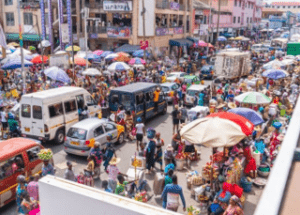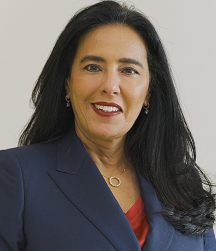Dahlia Khalifa, IFC’s Regional Director for Central Africa and Anglophone West Africa, is optimistic about Ghana’s economic prospects, highlighting the country’s resilience and economic potential in an interview with B&FT.
Consequently, she emphasised the IFC’s commitment to supporting private-sector growth despite recent macroeconomic challenges. Job creation and economic transformation rather than just investment volumes measure IFC’s impact, she notes.
Over the past decade, IFC has injected more than US$2billion into the Ghanaian economy, with US$450million disbursed in the last year alone – a figure expected to rise in 2024.
The IFC is channeling its investments into sectors with high employment potential including agribusiness, light manufacturing and renewable energy. She added that Ghana’s fundamentals remain strong despite economic turbulence, positioning the country for sustained growth.
“IFC is exploring opportunities in the rice, tomatoes, fisheries and animal-feed industries to strengthen domestic supply chains.”
The IFC Regional Director was emphatic that Ghana should not be importing certain products when it has the resources to produce them locally. To this end, the IFC is actively supporting businesses that enhance domestic value addition.
One of IFC’s most significant recent projects is its US$21million investment in Ghana’s largest private-sector-led solar initiative in partnership with LMI Holdings. The financing is part of a US$100million facility designed to scale-up rooftop solar capacity in industrial zones.
Khalifa highlighted the success of LMI’s solar deployment, which currently stands at 16.8 megawatts – making it Africa’s largest rooftop solar installation and the third-largest globally, just behind Tesla and Apple.
The facility is set to expand to 200 megawatts, further strengthening Ghana’s renewable energy infrastructure. Beyond energy, IFC is expanding its footprint in Ghana’s manufacturing sector, particularly in garments and textiles. One standout beneficiary is DTRT (Do the Right Thing), a major apparel manufacturer employing over 7,000 people.
She described the company as an example of how strategic investments can scale up industries and create employment at scale. “The IFC sees immense potential for Ghana to become a regional hub for garment production,” she noted.

IFC is also deepening its support for small- and medium-sized enterprises (SMEs) by working with local banks to expand financing. Recent agreements include a US$20million facility with Access Bank to support SMEs, with a specific focus on women-led businesses.










